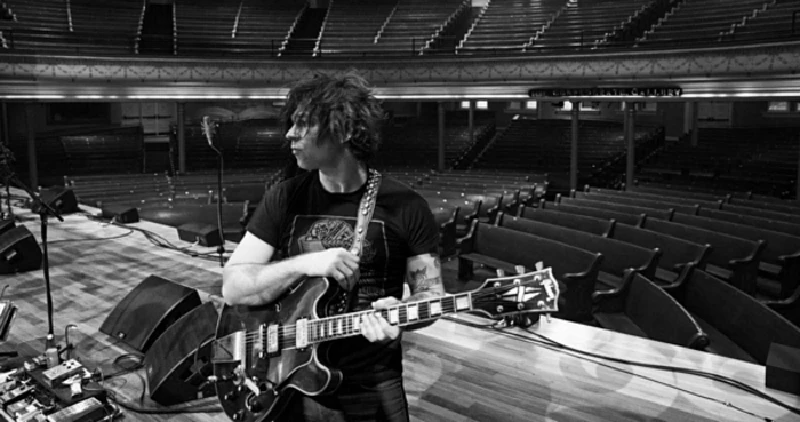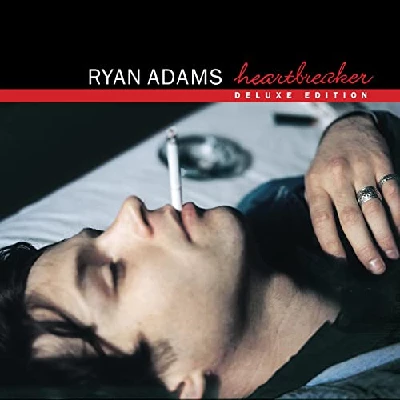Ryan Adams - It’s Time We Torpedoed Rock Mythology
by Mark Rowland
published: 11 / 3 / 2019

intro
With the recent allegations against Ryan Adams, Mark Rowland says that it is finally time to stop forgiving our rock stars for their abusive behaviour.
When it comes to the songs you really love, the ones that affect you in a profoundly emotional way – the ones that really mean something to you – should the behaviour of the artist behind it influence your listening? It’s a question that every music fan has asked themselves at some point or another, and it’s getting increasingly harder to ignore. I know that John Lennon had a violent streak, reportedly physically abused both his wives, and neglected his first son. I also know he tried to change his ways later in life. Does one cancel out the other? Does David Bowie’s behaviour in later life, when by all accounts he was very down to Earth and living a quiet life, make up for how he acted when he was on mountains of cocaine? It’s a tricky one. If I exorcised Lennon and Bowie’s music from my life, I know I would feel like a lot poorer for it. The situation with Ryan Adams is slightly different than that, of course – had he not been exposed, his alleged pattern of abusive behaviour would have likely continued. He also seems fairly unrepentant, despite the evidence that has reportedly been gathered against him (and that I tend, on the strength of it, to believe). While I wouldn’t call myself a Ryan Adams superfan, there are some songs of his I really love, especially from his Whiskeytown days. When I read the article that exposed him, I felt angry at his behaviour, and at the music we’ve all lost because of his actions. I felt glad that the music industry was finally getting its own reckoning – one that had been long overdue. But I also, if I’m honest with myself, felt sad to lose some songs I liked (though I’m more than happy to keep Phoebe Bridgers’ music in my collection over his). It’s a conflict I can’t reconcile, but it’s a pain that we’re all going to have to bear if we want the music industry to work the way it should. We’ve given a free pass to too many musicians’ behaviour because of their place within rock history. Music writing in particular is guilty of perpetuating myths that are designed to protect stars from repercussions if they engage in predatory behaviour. We’ve defined rock ‘n’ roll behaviour as being both outrageous and promiscuous, and it’s damaging. I have no problem with what two (or more) consenting adults get up to in their spare time. I also have plenty of time for drama and spectacle in rock music. But outrageousness can be left onstage, and more often than not, musicians have used their star power to manipulate starstruck underage girls and boys into bed with them. Led Zeppelin actively sought out underage groupies. David Bowie, Iggy Pop, and Mick Jagger all slept with Lori Maddox and Sable Starr, who were both schoolgirls at the time. R Kelly is guilty of the same thing and then some – holding young women against their will, filming an encounter with a 14-year-old girl – and has managed to maintain a career for more than twenty years. Popularity and critical acclaim act as a shield for this behaviour, as it’s just what rock stars do. Even more damaging, and somewhat more insidious, is the idea of the troubled genius; that artists cannot help themselves, that their beautiful, affecting music can only come from a broken personality. They cannot help lashing out, verbally or physically. Their life is hard, and their music is wonderful, so they deserve our sympathy and protection. This, for want of a better term, is utter bollocks. People are gifted songwriters despite their mental illnesses, not because of them. Yes, they might have a well of experience to draw upon when writing. But a lot of people have those experiences, and they don’t write great songs. Songwriting is a craft, and they worked at it. That’s why their songs are great. These myths make for a good story, but they also shelter artists using their power to take advantage of others. We need to accept them for what they are: stories. The reality is much messier than that. We might not all be able to give up the songs that shaped us, but we can do better to hold the artists of today – and tomorrow – into account.
reviews |
|
Heartbreaker (2001) |

|
| The name Ryan Adams may be new to you but you may have heard of the group he led called Whiskeytown. At the moment their future is a little uncertain and it is not even totally clear if they will cont |
most viewed articles
current edition
John McKay - InterviewRobert Forster - Interview
Cathode Ray - Interview
Spear Of Destiny - Interview
Fiona Hutchings - Interview
When Rivers Meet - Waterfront, Norwich, 29/5/2025
Carl Ewens - David Bowie 1964 to 1982 On Track: Every Album, Every Song
Chris Wade - Interview
Brian Wilson - Ten Songs That Made Me Love...
Shrag - Huw Stephens Session 08.12.10 and Marc Riley Session 21.03.12
previous editions
Heavenly - P.U.N.K. Girl EPBoomtown Rats - Ten Songs That Made Me Love....
Allan Clarke - Interview
Manic Street Preachers - (Gig of a Lifetime) Millennium Stadium, Cardiff, December 1999
Oasis - Oasis, Earl's Court, London, 1995
Barrie Barlow - Interview
Dwina Gibb - Interview
Beautiful South - Ten Songs That Made Me Love...
Pixies - Ten Songs That Made Me Love...
Sound - Interview with Bi Marshall Part 1
most viewed reviews
current edition
Peter Doolan - I Am a Tree Rooted to the Spot and a Snake Moves Around Me,in a CircleVinny Peculiar - Things Too Long Left Unsaid
Garbage - Let All That We Imagine Be The Light
Vultures - Liz Kershaw Session 16.06.88
John McKay - Sixes and #Sevens
Little Simz - Lotus
HAIM - I Quit
Morcheeba - Escape The Chaos
Eddie Chacon - Lay Low
Billy Nomates - Metalhorse
Pennyblackmusic Regular Contributors
Adrian Janes
Amanda J. Window
Andrew Twambley
Anthony Dhanendran
Benjamin Howarth
Cila Warncke
Daniel Cressey
Darren Aston
Dastardly
Dave Goodwin
Denzil Watson
Dominic B. Simpson
Eoghan Lyng
Fiona Hutchings
Harry Sherriff
Helen Tipping
Jamie Rowland
John Clarkson
Julie Cruickshank
Kimberly Bright
Lisa Torem
Maarten Schiethart